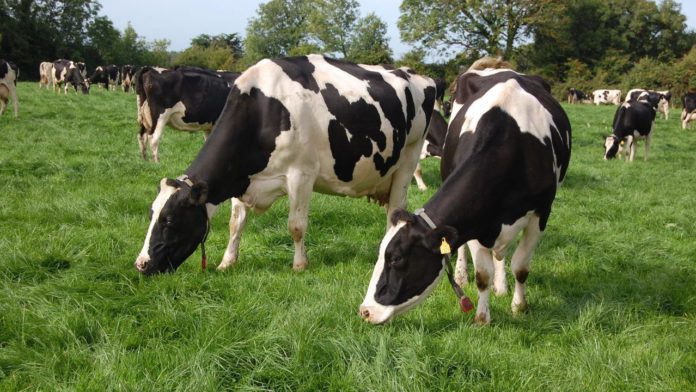In this article, CAFRE’s Richard Gibson, discusses parasite control in dairy cows and youngstock and reseeding assessment.
Calves are born free of parasites. Likewise, any older animals that were treated for parasites over the winter will be free of any worm burden.
However, once turned out to graze, animals of all ages will become infected with parasites while grazing pastures that harbour the infective larvae.
At this time of year, warmer weather allows the overwintered parasite eggs to rapidly develop into the infective larval stage, leaving grazing animals at risk of high worm burdens.
The impact of parasites can range from lower growth rates in heifers to reduced milk yields to serious clinical disease.
First grazers, born last autumn or this spring, are at the highest risk of disease as they have not developed protective immunity.
You should give treatments before the predicted risk period to prevent a build-up of infection to dangerous levels.
Treatments will limit contamination of pastures and reduce the risk of subsequent worm scours and hoose.
Reseeding assessments
As we approach the time of year when most reseeding will be carried out, identify underperforming fields through sward assessment.
Regular grass measuring can highlight fields that need attention and perhaps a full reseed.
Consider reseeding if two or more of the following criteria are met:
- Sward productivity has fallen significantly;
- The proportion of sown species are below 60%;
- High levels of native grasses and weeds are present;
- Significant evidence of soil compaction, especially at depth.
If drainage in the fields selected for reseeding is not optimal, carry out light remedial work or plan for a more major renovation.
Look for wet areas and indicator species such as rushes. As sheughs become blocked with silt/grass overtime, it is important they are cleaned out.
Also, check outflows from existing shores to ensure they are still running.
Further reading
For more farming tips and advice, click here.





